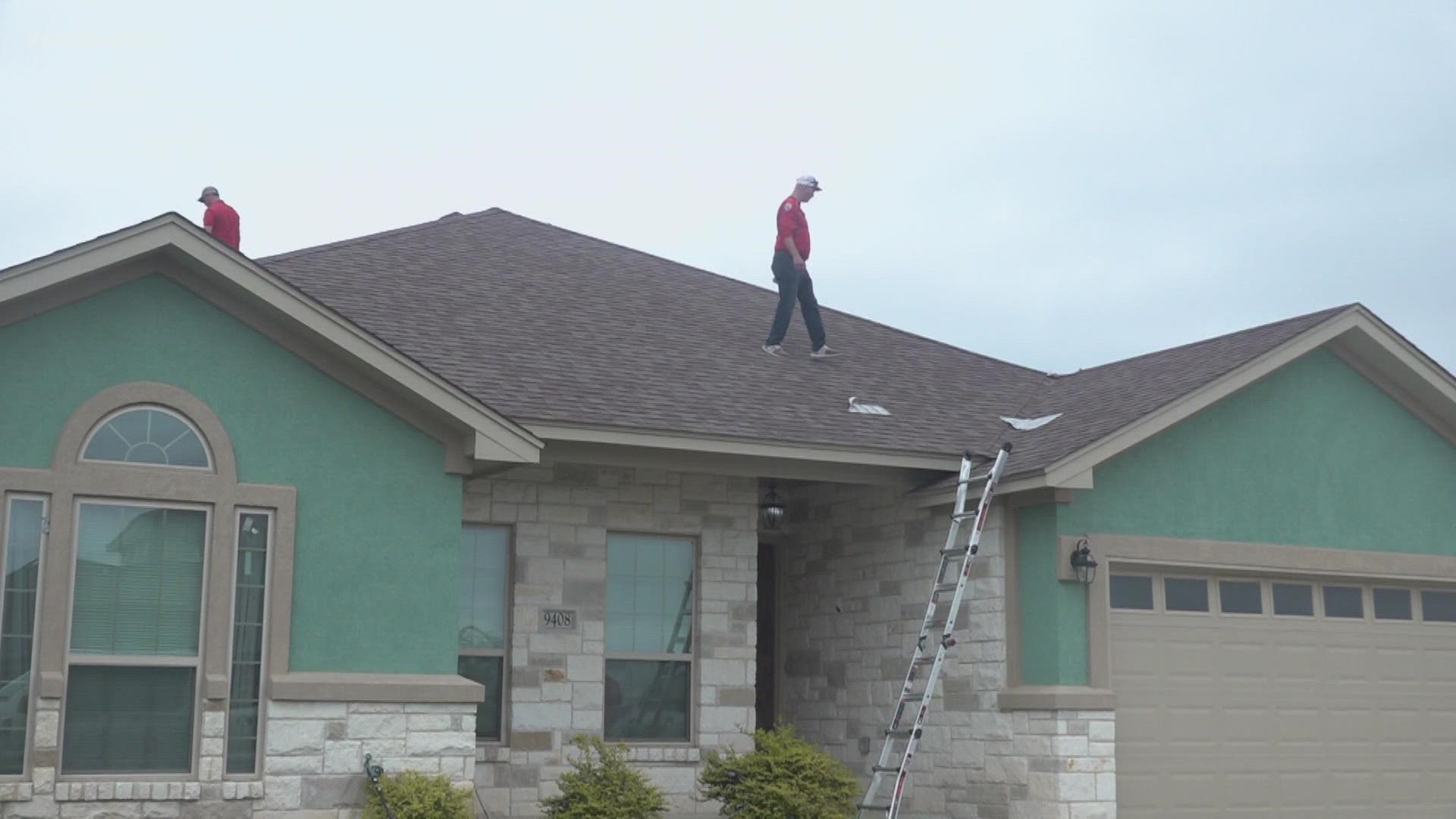BELL COUNTY, Texas — The storms that flew through Bell County Tuesday night didn't just produce high winds and a tornado; they also resulted in plenty of hail. Of course, people living near Salado got hit hard.
Wednesday, another kind of storm hit the area -- a storm of roofing contractors. Nellie Williams told 6 News they had at least 10 roofers come to their home over three days and after a while, they just stopped opening the door.
"These ambulance-chaser type roofers that are coming around... all they want you to do is sign on the dotted line. We don't know what kind of business they do. They're not local," Williams said.
"This (one) gentleman asked me to sign a contract that said, if there is enough damage to the roof to do a replacement, it would be his company to do the replacement with. It just seemed like I was being pushed way to hard and way to fast," Norman Berry said. "I declined to sign that."
Williams said some contractors even told the family they would contact the insurance company instead of the family. Again, Williams said "no."
Friday, 6 News contacted a local highly-rated roofing company in Salado to ask how business should be conducted.
Knowater Roofing has an A+ rating with the Better Business Bureau (BBB), has no complaints registered against them on the BBB site and has a local business address. The company also has many positive Google reviews.
Owner Luke Duell said he has plenty of roofs to look at in the Salado area right now but was able to meet up and talk about the steps homeowners should take before they work with a roofing company.
Step one for homeowners is to do their own research on a company.
Google and yelp reviews may be helpful, but the best place to start is the BBB which keeps track of complaints and lists the companies business address and phone number.
Step two, when dealing with a roofing company, is verifying their insurance information.
Duell had no issues showing a card with his current insurance information and he told 6 News homeowners should actually call a roofer's insurance company to make sure that policy is still active.
"Say they do provide this. You want to call that insurance company and just verify that they are in good standing," Duell said.
Step three is making sure the company has a professional contract.
A professional contract will not be a one-page estimate written out in pen or pencil. Duell has a three page contract, which can be sent in a Word document, which specifies the work that will be done, the time-frame that work will be done in, the down payment at the start of the job and the payment at the end of the job. Duell said the contract should have clauses to protect both parties.
"My attorney said 'Luke, every business or homeowner you do business with... they have to sign this contract.' It not only protects the homeowner but it protects the roofer. There are two sides," Duell said.
Duell said a good contract should protect homeowners from a contractor that wants to take their money and run. It will also protect the roofer if the homeowner tries to keep their final payment. Duell said he does ask for around 50 percent of the money up front for materials and there is a set payment structure.
Additionally, Duell said he did not expect a homeowner to sign a contract until that homeowner has also contacted their insurance company. He said he is willing to meet the company's insurance adjuster if needed and a homeowner should not be pressured into signing something before hand.
"Contract comes in way later in the game. How can you sign a contract if you don't know what roof system they offer? That's something a good contractor is going to take the time to go over," Duell said. "Don't rush to sign any contract."
Duell said there is damage in the Salado area, and he is glad that more companies are coming in to help people, but local home owners still need to be careful.
"There is a lot of roofs. The locals can't do it by themselves so we appreciate outsiders coming in. But verify them too because if you have a problem down the road with a warranty and they are up in Oklahoma...it could take months," Duell said.

